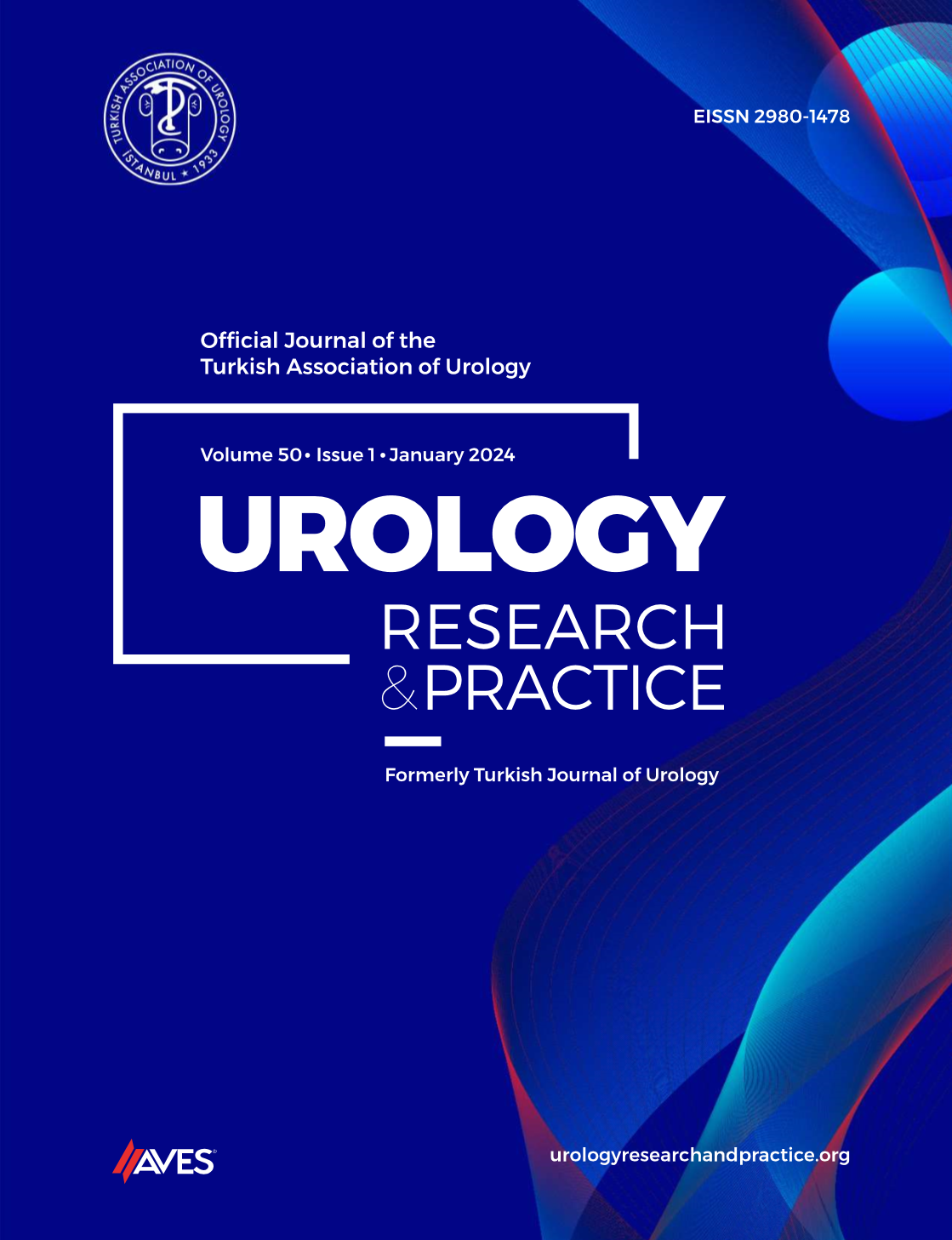Abstract
Objective: We evaluated the factors affecting recurrence and survival of patients who underwent retropubic radical prostatectomy (RP) for localized prostate cancer.
Materials and methods: A total of 118 patients (mean age 66.8 years) who underwent RP between January 2001 and December 2009 in our clinic were evaluated retrospectively. The effects of clinical and pathologic parameters on recurrence were evaluated in 90 patients and the effects of these parameters on survival were evaluated in 100 patients.
Results: Mean serum prostate specific antigen (PSA) level was 13.36 ng/mL. According to pathological stage, 6 patients were T2a (6.7%), 52 patients T2c (58.4%), 15 patients T3a (16.8%), 15 patients T3b (16.8%), and 1 patient T4a (1.1%). Of the patients, 33.1% had extraprostatic extension, 54.2% had perineural invasıon, 18.6% had seminal vesicle invasion, and 63.6% had positive surgical margins. Twenty-nine patients (32.2%) had recurrence. Mean time to recurrence was 18.4 months. In multivariate analysis, pathological stage, serum PSA, positive biopsy core number and percent, seminal vesicle invasion, extraprostatic extension, perineural invasion, Gleason grade, surgical margin positivity, presence of high grade prostatic intraepitelial neoplasia and high risk tumor according to D’Amico risk stratification were significant parameters affecting the recurrence rate.
Conclusion: In patients with localized prostate cancer who underwent RP, patient recurrence can be predicted by evaluating clinical and pathological parameters.

.png)


.png)